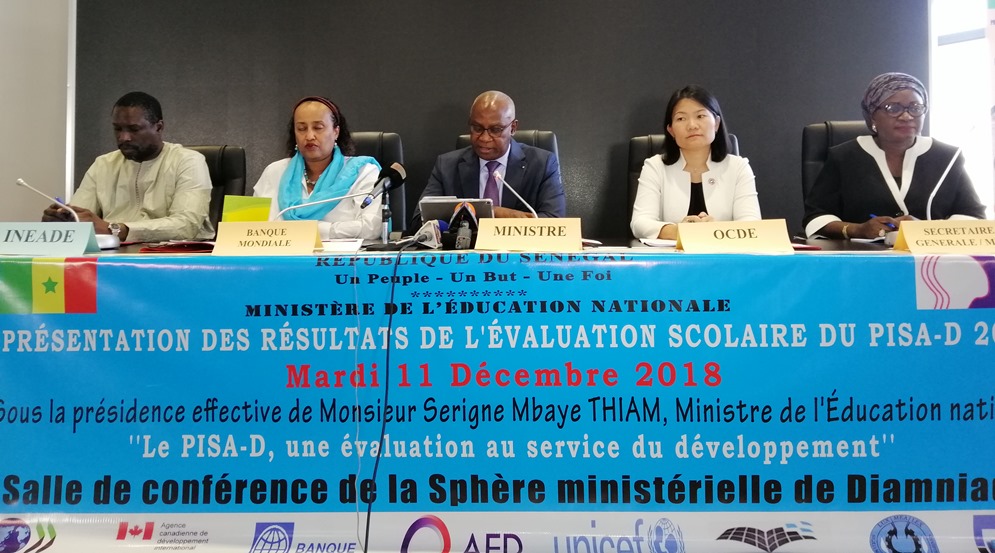Senegal shares the results of its first participation in PISA-D
Senegal presented the results of the PISA for Development (PISA-D) on 11 December 2018. An opportunity for partners including the OECD, the World Bank and UNESCO to acknowledge and congratulate the country's efforts in its first participation in this international learning assessment programme to promote quality education.

Every three years, about 80 countries and economies collaborate to compare how their school systems prepare young people for their personal and professional futures. The framework for these comparisons is an international assessment of the knowledge and skills of 15-year-old students, known as PISA, the Programme for International Student Assessment.
PISA not only examines whether students have acquired what they have been taught, but also evaluates their capacity to use this knowledge in practice. Launched by the OECD, the PISA-D Initiative aims to encourage and facilitate the participation of low- and middle-income countries interested in this programme. Eight countries are participating in the PISA-D initiative: Cambodia, Ecuador, Guatemala, Honduras, Panama, Paraguay, Senegal and Zambia.
According to the Senegalese Minister of National Education, Serigne Mbaye Thiam, Senegal had set two major objectives when signing the protocol for participation in this international assessment programme on 30 July 2014: first, to provide itself with an instrument for acquiring external data for a proper assessment of the effectiveness of its own education system, in addition to other assessments conducted at the national or regional level; secondly, to benefit from the expertise of PISA to strengthen the capacities of national experts and stakeholders in the field of learning assessment management.
"Senegal's participation responds to the ambition of adequate quality management and better regulation of the Senegalese education system. It is also an act of courage and responsibility to see the achievements of its education system and to know its weaknesses in order to go further," said the Minister who presided over the ceremony, also referring to "an exercise in transparency towards the educational community.”
Comparative analyses of the results have shown that Senegalese students face difficult conditions related to the availability of teaching materials and teacher qualifications, and are therefore faced with major challenges in achieving the minimum competency thresholds. Regarding gender, the results reveal that the disparity is not huge, except in mathematics where boys outperformed girls.
For UNESCO, these evaluations provide a good measure of the equity and quality of an education system and are an important source of information for policy makers committed to achieving SDG4 and CESA 16-25 targets.
The Teaching and Learning: Network of Educators for Transformation (TALENT) coordinated by UNESCO and represented at this ceremony since the beginning has focused its activities on learning assessment systems due to their key role in supporting learning and guiding quality reform.
The recommendations resulting from the results of PISA-D for Senegal are among others:
- Strengthen and generalize the competency-based approach in lower and upper secondary education
- Refocus initial and in-service teacher training (orientation and content)
- Improve and adapt learning conditions to development objectives
- Develop strategies to assist drop-out children and those at risk of dropping-out
